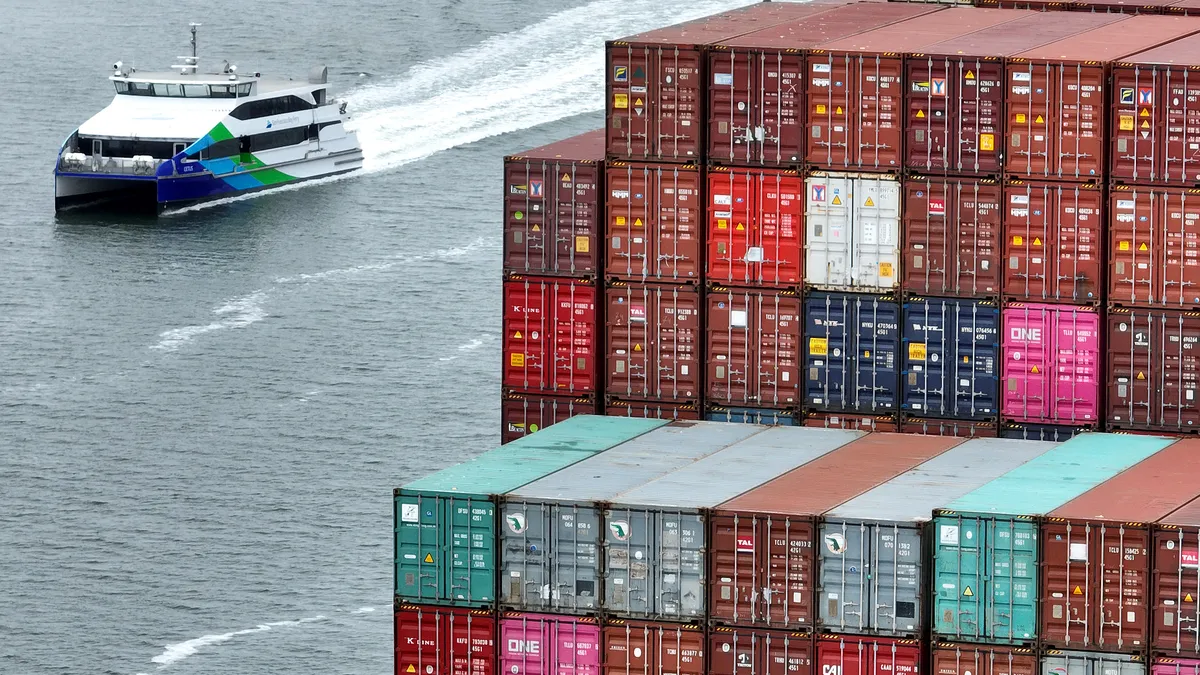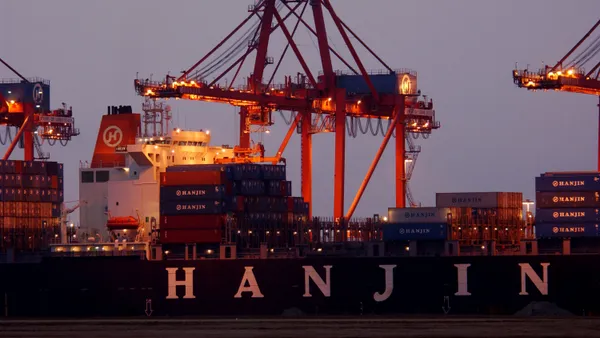Dive Brief:
- The National Retail Federation and Hackett Associates lowered their forecast of loaded import volumes expected through October of this year, with the organizations saying in a press release the year's peak has already been reached.
- Loaded import cargo volumes reached 1.96 million TEUs in August, and are forecasted to reach 1.94 million TEUs the next two months, according to the organizations' Global Port Tracker. Last month, the organizations predicted volumes would reach 2 million TEUs during the three-month stretch.
- "Ships are not sailing fully loaded, and freight rates are declining as a result," Hackett Associates Founder Ben Hackett said in a statement. "That’s a further indication that no cargo growth from current levels is expected on the near-term horizon. Perhaps 2024 will be better.”
Dive Insight:
Volumes are expected to slow down heading into the holiday season since shippers stocked up on inventory earlier this year to avoid possible labor disruptions, NRF Vice President for Supply Chain and Customs Policy Jonathan Gold said in a statement.
In August, the nation's top ports felt the effects of an import volume slowdown.
Eleven of the top 12 U.S. container ports reported a dip in total cargo volumes for Aug. 2023 compared to the previous year, according to data compiled by Supply Chain Dive. The Port of Los Angeles was the only one with an annual rise in total TEUs processed for that month.
In all, ports handled a total of 4 million TEUs in August, 3% more than July figures but 15% less than the same month last year.
Cargo volumes by the numbers
Ports across the country emphasized the annual declines follow a record year for ports in 2022, and mentioned volumes remain on-pace with pre-pandemic levels despite retailers' efforts to destock.
In the first eight months of the year, the top 12 ports handled 30.3 million TEUs — less than the 31.1 million handled from January to August 2019, but slightly more than the 30 million handled during the first eight months of 2018.
Moving forward, Gold said “cargo volumes will still be strong the rest of the year, but not as high as we expected a month ago.”
Hackett added shipping lines are already adjusting their operations to suit lighter volumes by the end of the year. “They have slowed down their ships in an attempt to cut capacity without having to take vessels out of service as new, larger ones ordered when demand was higher are delivered.”















